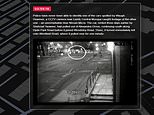This article is taken from the July 2025 issue of The Critic. To get the full magazine why not subscribe? Right now we’re offering five issues for just £25.
“I’m Marcus and I’m a phoneaholic.”
There. I’ve said it. Ever since buying an iPhone immediately after starting my curacy, I have been hooked. It’s the best toy I’ve ever bought and has become my closest companion. It satisfies my thirst for knowledge, helps me win debates, stops me getting bored on trains, enables me to stay in touch with friends and family across the world in a way impossible beforehand.
And yet there I was in a major London religious establishment (I shall not name and shame) glowering because I had been forced to use my phone in order to access their order of service that day. It was a Sunday during last year’s summer holiday, and I was attending the Eucharist with my mother.
Things got off to a shaky start. The look on my mother’s face, when told that to take part in Divine Worship she would have to scan a QR code, led to a sidesman opting hastily for discretion over valour.
A physical copy was handed over in the style of a Soviet asset passing nuclear secrets in Gorky Park. When I asked if I could have one too, I obviously looked far less menacing and was told sharply not to push my luck. It was explained that this was part of their Net Zero project.
So I spent the service on my phone. I would like to say that I resisted temptation, but that would be a lie. It really did not take long for me to slide over to Twitter — probably during the first lesson — and I was gone. I’d love to tell you that the reason I spent the sermon tweeting and texting was because the preacher was awful but …
I have no idea. He might have been St John Chrysostom for all the attention I paid.
Now you could say, “Marcus, there is no reason why this church should ditch its very wholesome environmental project just because you’re a hopeless addict,” and you would be right — except that I was not the only one.
In fact, the only person not on her phone throughout the sermon was my mother because she really couldn’t after making all that fuss earlier. I looked around and saw Instagram, TikTok, WhatsApp, Twitter — and one chap furiously tapping out an email.
Put not a stumbling block before the blind, says Scripture — and, my friends, I stumbled.
I am sure that the Holy Communion was efficacious when I took it, but I am not convinced that I could, with any integrity, say I took part in that service.
I confess I’m not really able to read if my phone is nearby
Now this plays into all sorts of questions about the world and how human beings are interacting with technology. As well as not being able to pray properly if I have my phone in my hand, I confess that I’m not really able to read properly if my phone is nearby.
No matter how engaging the novel or how interesting the nuances of 5th century philosophical Trinitarian questions, when my ears hear the ping of a message, my brain responds with Pavlovian predictability, and I reach for the device.
Which is why churches have a wonderful opportunity not just to be counter-cultural but counter-epochal. In a world of 30-second TikToks, AI romances, 24-7 emails and a news cycle measured in minutes not days, attending church points us to a timeless reality of what it means to be human — that happens also to be divine.
The secret of Christianity is that it is corporeal, it is physical. The sacraments cannot be imparted virtually, no matter how hard some tried to tell us they could in lockdown.
The truths being explored are not 30 seconds long; they were millennia in gestation and found themselves written in a series of books where the themes overlap and interplay and form over the course of a narrative that takes us “from the first days of our disobedience unto the glorious redemption brought us by this Holy Child” (as we say at Christmas).
All the tools of modern media might be employed to reinforce this story, but at its core is a book, a meal of unleavened bread and wine, the coldness of water and the warmth of the laying on of hands.
Christianity cannot be virtual; it has to be physical and corporeal because at its heart is a God who became physical and corporeal in order that we might become divine.
In a world increasingly being played out online, going to Church should be an immersion in cold water that wakes us out of sleep. It lets us see the world around us more clearly as our heads break water each week, and we appreciate the infinite value of the real world around us and the real people we have the privilege of living among.
For that, though, we need to be forced to put down those tools of our virtual life and spend that little time each service reconnecting with the physical world before us — and maybe also getting a foretaste of that world which lies ahead of us.












